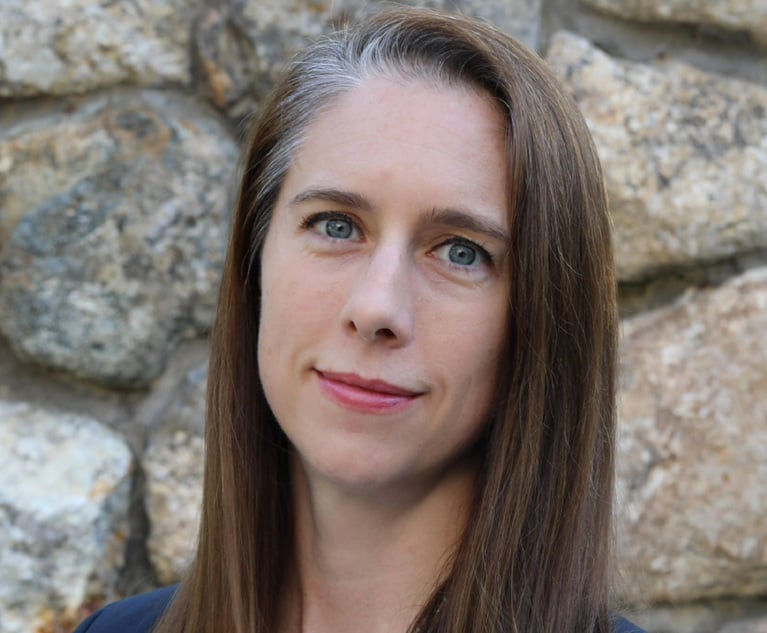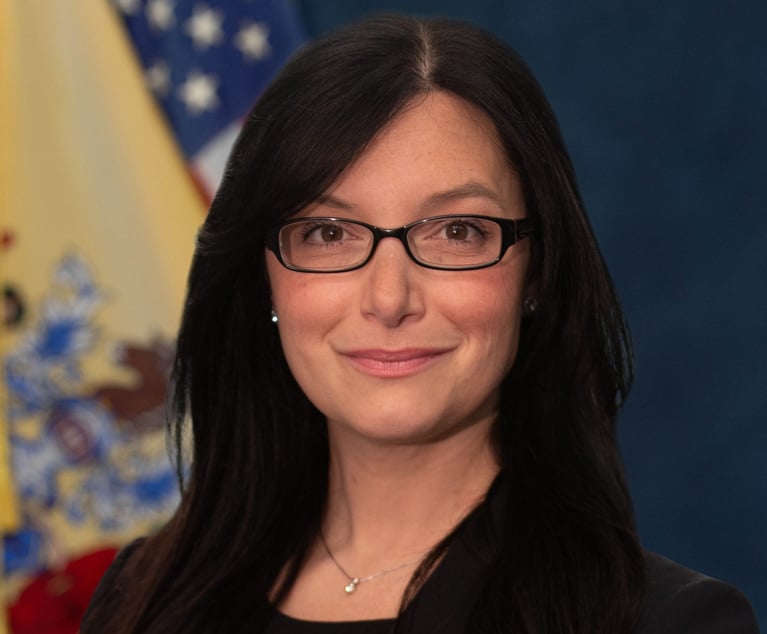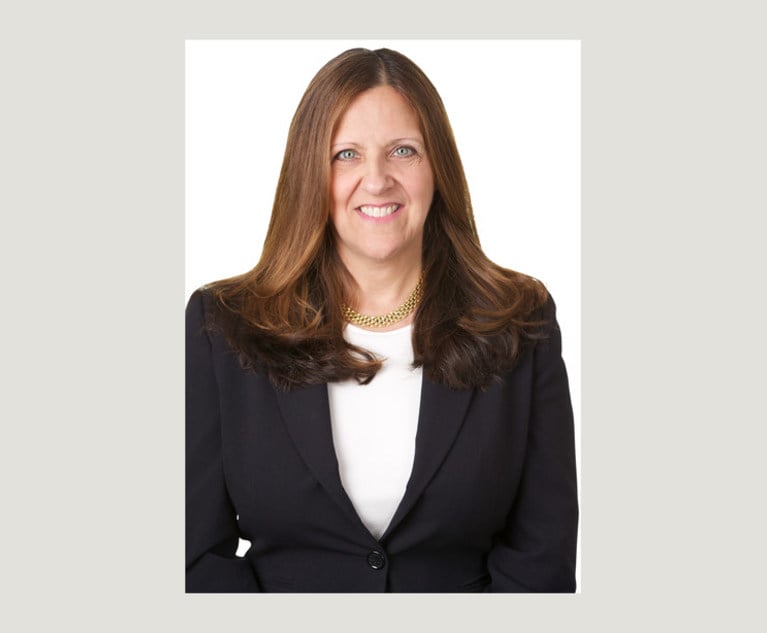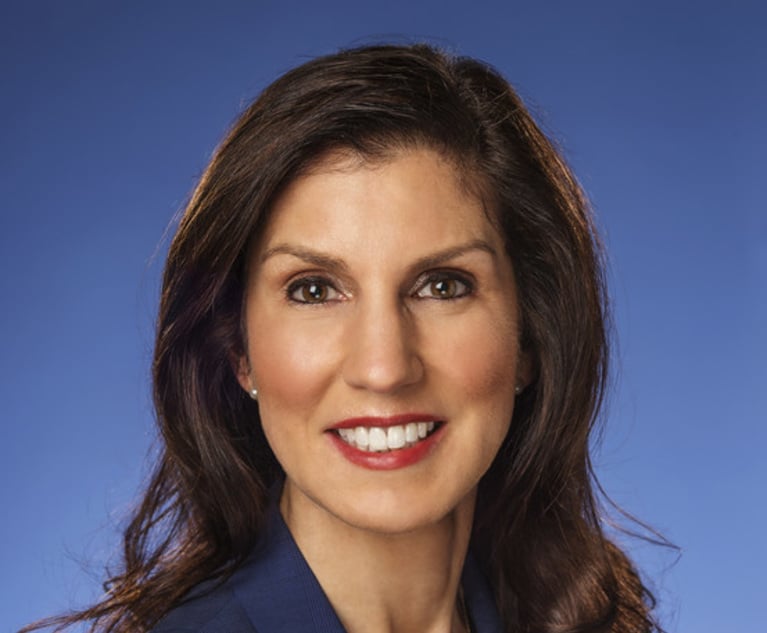 David White of Seton Hall University School of Law
David White of Seton Hall University School of LawSeton Hall Law's David White: Mentorship 'Becomes Who You Are, Not What You Do'
"Our profession, like the law itself, is often counter-intuitive. The richness of our craft is discovered in traditions which are not reduced to writing. There is no hornbook or commercial outline from which one can learn to be a compassionate agent of reality or an effective negotiator."
June 10, 2019 at 05:53 PM
4 minute read
David White is director of the Seton Hall University School of Law Conflict Management Program and professor of legal practice at the school. After joining the school in 2010, White helped launch: the Seton Hall Consumer Arbitration Practicum in tandem with the New Jersey Attorney General's Office; a securities arbitration clinic with federal funding; and the Seton Hall Representation in Mediation Practicum in the Southern District of New York which, more recently, was replicated in the District of New Jersey's Trenton and Newark vicinages. A colleague said, “To a growing generation of Seton Hall lawyers, Prof. White is both innovator and mentor whose passionate commitment to justice has positively affected lives throughout the region.”
Is the role of mentor one you set out to take, or one you happened into?
The most impactful advice I received in my legal career was to recognize twin moral imperatives: give back and pay forward. I acknowledge a debt to those who have invested in my advancement. Some of those individuals are accomplished to such a degree that I will never be able to improve their standing. But for many more, I am now positioned to open doors and equip junior colleagues with the networking and resources they require for success.
Why are mentors so important in the legal profession?
Our profession, like the law itself, is often counter-intuitive. The richness of our craft is discovered in traditions which are not reduced to writing. There is no hornbook or commercial outline from which one can learn to be a compassionate agent of reality or an effective negotiator. To hone those essential skills, attorneys must look to seasoned colleagues who model best practices.
Good mentors often have learned from good examples. Who are some people who have mentored you?
I credit a trio of colleagues for their encouragement to become a full-time law professor. As a student, I observed the peerless example of constitutional law scholar and legendary Fordham Law Dean John D. Feerick, who taught me that integrity is the touchstone of our profession. At a very nascent phase of my private practice, Dean Feerick invited me to co- instruct International Conflict Resolution in Belfast, Northern Ireland, and Dublin, Republic of Ireland. Thereafter, Prof. Lela P. Love welcomed me to the Benjamin N. Cardozo School of Law Kukin Program for Conflict Resolution. Prof. Love, one of the brightest stars in the conflict-management firmament, continues to demonstrate dogged determination. Georgetown University Law Center Dean William M. Treanor has been a staunch supporter from our days together at Fordham through my appointment to the Georgetown adjunct faculty. His humility is a constant reminder that an attorney's best work is often unheralded by fanfare.
Law is, for many, more than a full-time job. How does one create time for mentorship?
Mentoring, at its finest, is indiscernible from day-to-day engagement. If you consciously conceive of that activity as separable from what you do, it will be a daunting challenge. By contrast, internalizing the action yields a seamless, efficient process. It becomes who you are, not what you do.
How are the business and profession of law changing, and are New Jersey lawyers well-positioned for the future?
Nationwide, the legal profession is experiencing profound cultural change. Since the Great Recession, clients have become more exacting in expectation and more critical in their assessment of value. Simultaneously, recent law school graduates have rejected long- standing ethos and differently define career success. At Seton Hall, we are dynamic in our approach to meeting these evolving market conditions. We inculcate values which begin with recognition of dignity, promulgation of civility, and the embrace of a problem-solving orientation. Strategic partnerships with federal courts throughout the region enable us to prepare New Jersey's next generation of attorneys as both advocates and business partners.
This content has been archived. It is available through our partners, LexisNexis® and Bloomberg Law.
To view this content, please continue to their sites.
Not a Lexis Subscriber?
Subscribe Now
Not a Bloomberg Law Subscriber?
Subscribe Now
NOT FOR REPRINT
© 2024 ALM Global, LLC, All Rights Reserved. Request academic re-use from www.copyright.com. All other uses, submit a request to [email protected]. For more information visit Asset & Logo Licensing.
You Might Like
View All
For Lawyers, the 'Work' of Making an Impact Does Not Have to Happen in a Courtroom. Laura E. Sedlak Says

Doing the Right Thing in the Pursuit of Justice Requires Guts, Says Lyndsay Ruotolo

One Can be Most Impactful When Their Pursuits Are Driven by Their Concerns and Passions, Says Sherilyn Pastor

As a Lawyer, You Have a Powerful Way to Make an Impact, Says Mary Frances Palisano
Trending Stories
Who Got The Work
Michael G. Bongiorno, Andrew Scott Dulberg and Elizabeth E. Driscoll from Wilmer Cutler Pickering Hale and Dorr have stepped in to represent Symbotic Inc., an A.I.-enabled technology platform that focuses on increasing supply chain efficiency, and other defendants in a pending shareholder derivative lawsuit. The case, filed Oct. 2 in Massachusetts District Court by the Brown Law Firm on behalf of Stephen Austen, accuses certain officers and directors of misleading investors in regard to Symbotic's potential for margin growth by failing to disclose that the company was not equipped to timely deploy its systems or manage expenses through project delays. The case, assigned to U.S. District Judge Nathaniel M. Gorton, is 1:24-cv-12522, Austen v. Cohen et al.
Who Got The Work
Edmund Polubinski and Marie Killmond of Davis Polk & Wardwell have entered appearances for data platform software development company MongoDB and other defendants in a pending shareholder derivative lawsuit. The action, filed Oct. 7 in New York Southern District Court by the Brown Law Firm, accuses the company's directors and/or officers of falsely expressing confidence in the company’s restructuring of its sales incentive plan and downplaying the severity of decreases in its upfront commitments. The case is 1:24-cv-07594, Roy v. Ittycheria et al.
Who Got The Work
Amy O. Bruchs and Kurt F. Ellison of Michael Best & Friedrich have entered appearances for Epic Systems Corp. in a pending employment discrimination lawsuit. The suit was filed Sept. 7 in Wisconsin Western District Court by Levine Eisberner LLC and Siri & Glimstad on behalf of a project manager who claims that he was wrongfully terminated after applying for a religious exemption to the defendant's COVID-19 vaccine mandate. The case, assigned to U.S. Magistrate Judge Anita Marie Boor, is 3:24-cv-00630, Secker, Nathan v. Epic Systems Corporation.
Who Got The Work
David X. Sullivan, Thomas J. Finn and Gregory A. Hall from McCarter & English have entered appearances for Sunrun Installation Services in a pending civil rights lawsuit. The complaint was filed Sept. 4 in Connecticut District Court by attorney Robert M. Berke on behalf of former employee George Edward Steins, who was arrested and charged with employing an unregistered home improvement salesperson. The complaint alleges that had Sunrun informed the Connecticut Department of Consumer Protection that the plaintiff's employment had ended in 2017 and that he no longer held Sunrun's home improvement contractor license, he would not have been hit with charges, which were dismissed in May 2024. The case, assigned to U.S. District Judge Jeffrey A. Meyer, is 3:24-cv-01423, Steins v. Sunrun, Inc. et al.
Who Got The Work
Greenberg Traurig shareholder Joshua L. Raskin has entered an appearance for boohoo.com UK Ltd. in a pending patent infringement lawsuit. The suit, filed Sept. 3 in Texas Eastern District Court by Rozier Hardt McDonough on behalf of Alto Dynamics, asserts five patents related to an online shopping platform. The case, assigned to U.S. District Judge Rodney Gilstrap, is 2:24-cv-00719, Alto Dynamics, LLC v. boohoo.com UK Limited.
Featured Firms
Law Offices of Gary Martin Hays & Associates, P.C.
(470) 294-1674
Law Offices of Mark E. Salomone
(857) 444-6468
Smith & Hassler
(713) 739-1250






